Queen Victoria Building – QVBBarrel Vault Roof Cartwheel Window The Great Australian Clock Royal Clock
The Queen Victoria Building (known as the QVB) was built in 1898 and designed by architect George McRae. It was replacing the original Sydney Markets and was named to honour the Queen Victoria’s Diamond Jubilee.
Construction of this Romanesque architecture took place during dire times, as Sydney was in severe recession, employing many out-of-work craftsmen – stonemasons, plasterers and stained window artists.
Elaborate Romanesque architecture was chosen for the grand building, that was to house a concert hall, coffee shops, showrooms, warehouses and a wide variety of tradespeople such as tailors, mercers, florists and hairdressers.
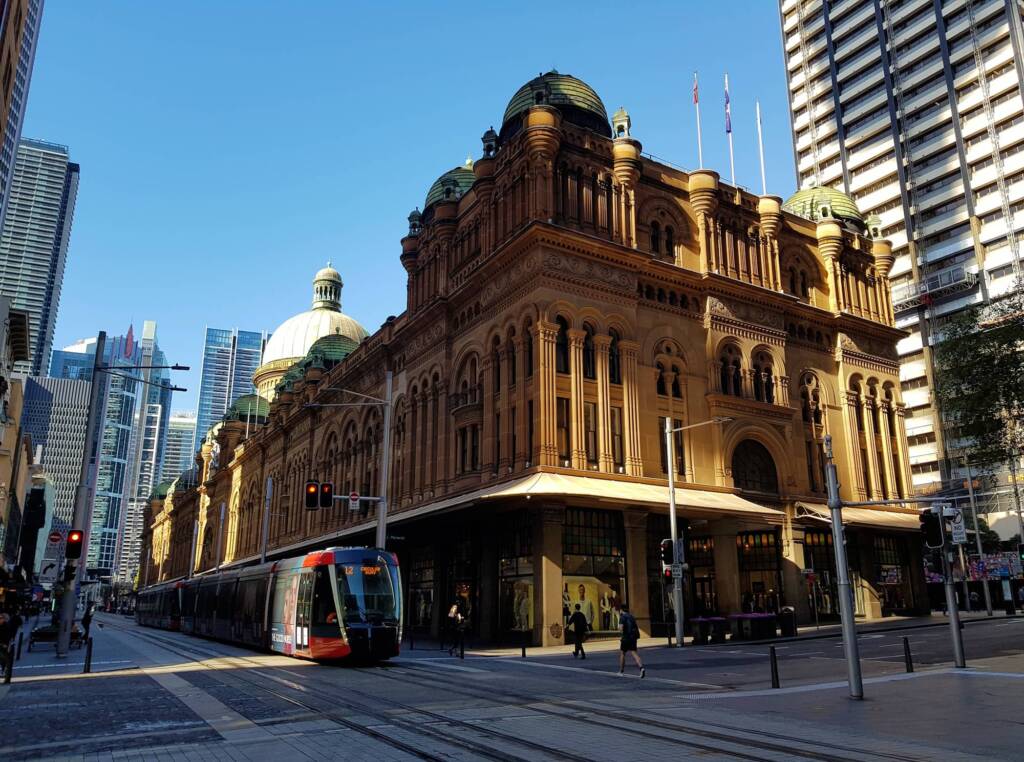
Over the many decades, the uses of the building changed, the concert hall became the city library, with a proliferation of offices proliferated, as well as many other tenants such as piano tuners, palmist and clairvoyants.
In the 1930s, drastic Art Deco ‘remodelling’ occurred to accommodate the main occupant – Sydney City Council. Then from 1959 to 1971, the Queen Victoria Building faced demolition, before a restoration project was given the green light.
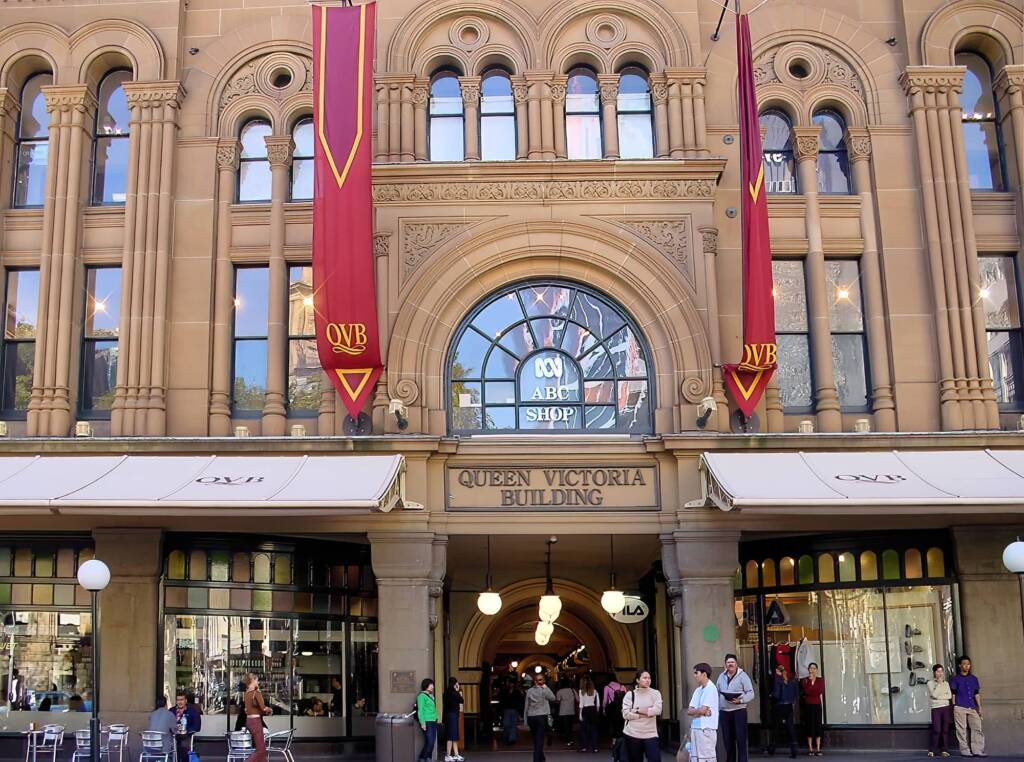
In 1982, Ipoh Garden was awarded the restoration project and a 99-year lease. The fully restored Queen Victoria Building was then re-opened in 1986. In 2009, there was another major refurbishment.
Today the QVB, as it is fondly called, stands in all her glory and is a testimony to the original vision for the building and the craftsmanship of the artisans who put it all back together again.
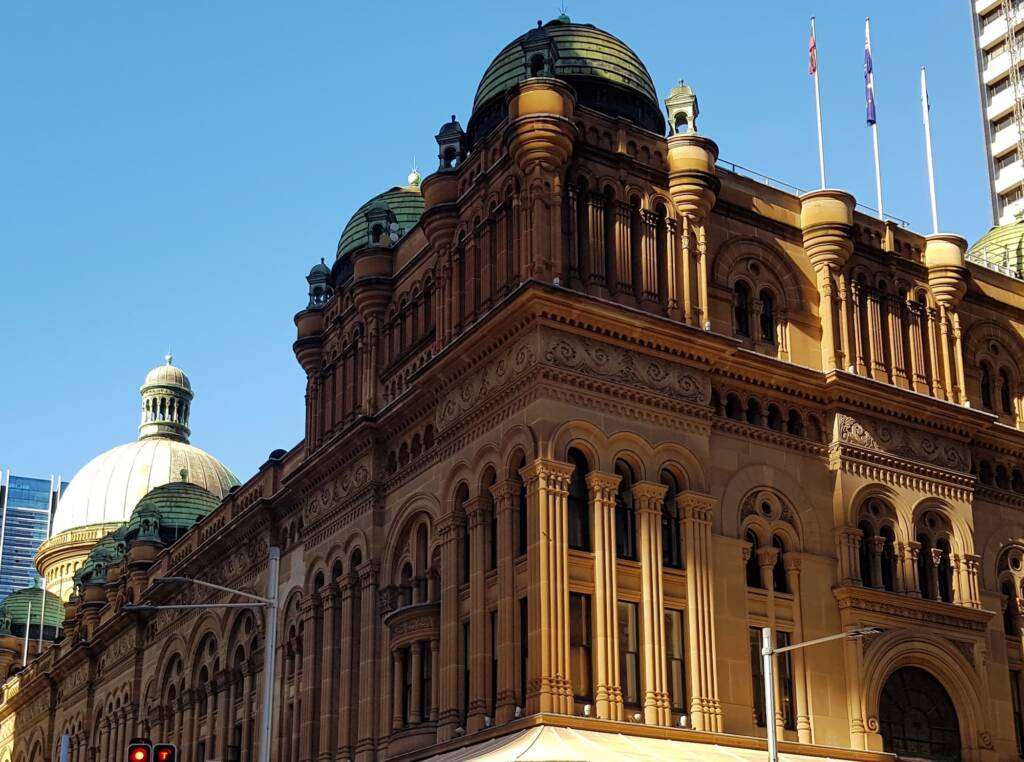
The grand central dome is the dominant feature of the QVB, with a glass interior dome and copper sheathed exterior.
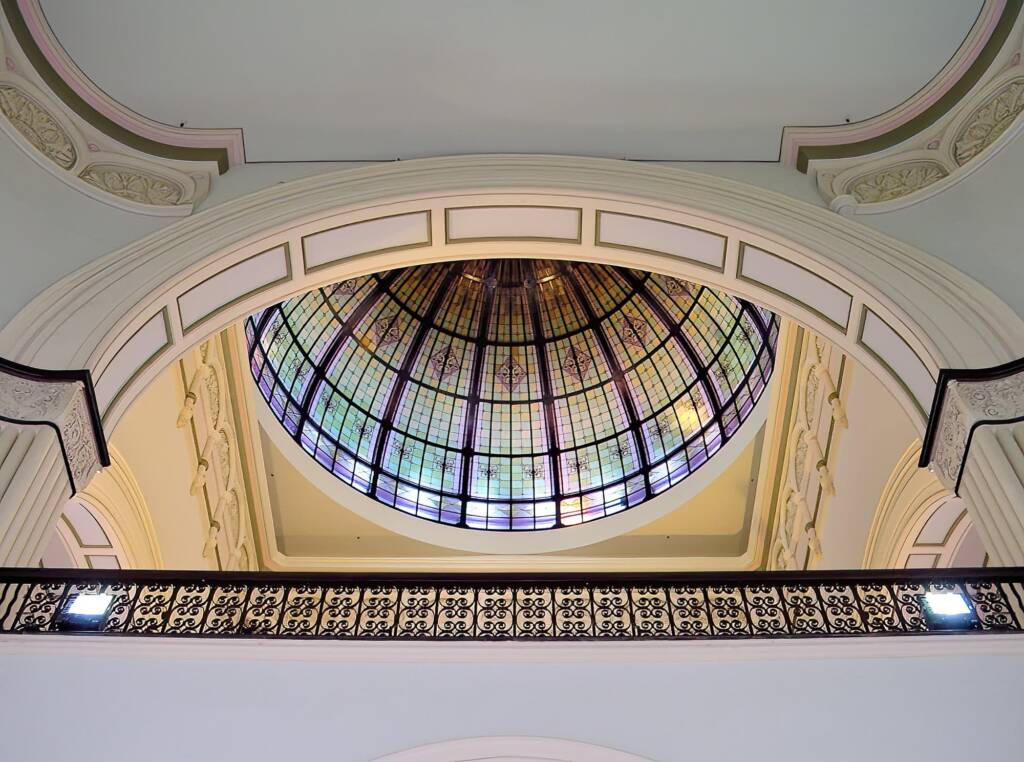
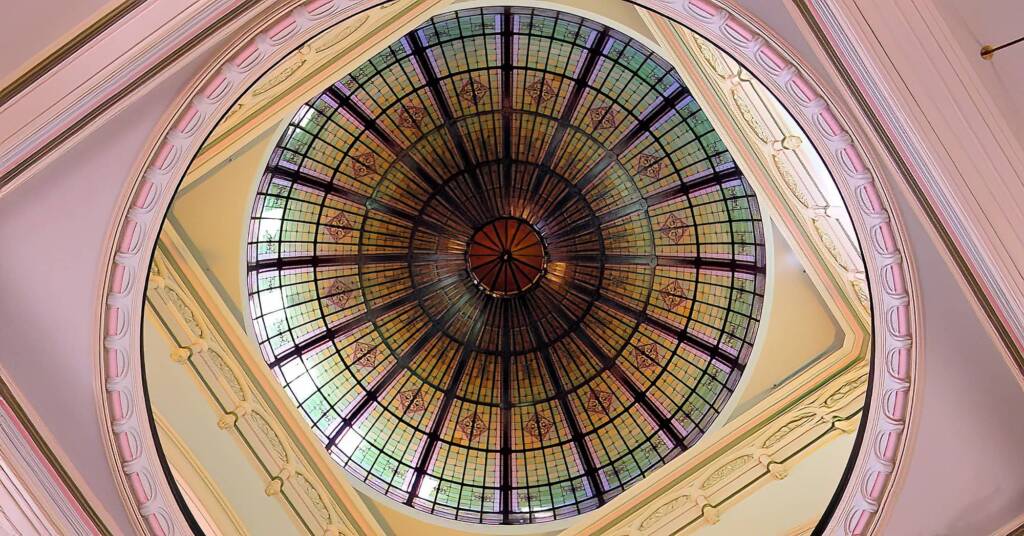
There are also stained glass windows that provide light into the dome, that include a cartwheel window featuring the ancient arms of the City of Sydney.
Check out our page on the Cartwheel Window, Queen Victoria Building.
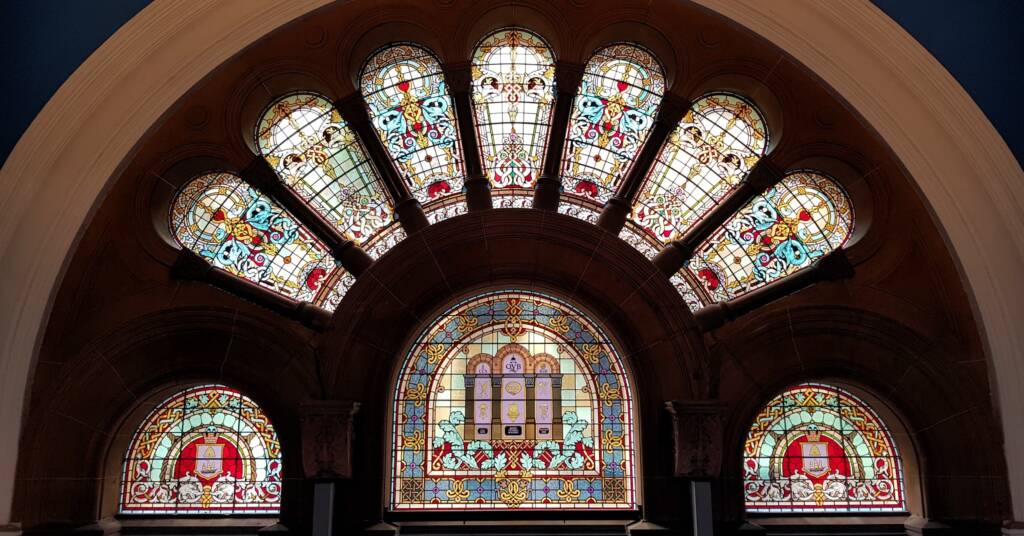
The building features elegant colonnades, arches, balustrades and cupolas. Running the full length of the building is an arched skylight roof. The interior of the building also features cast iron railings and beautiful decorative tile work.
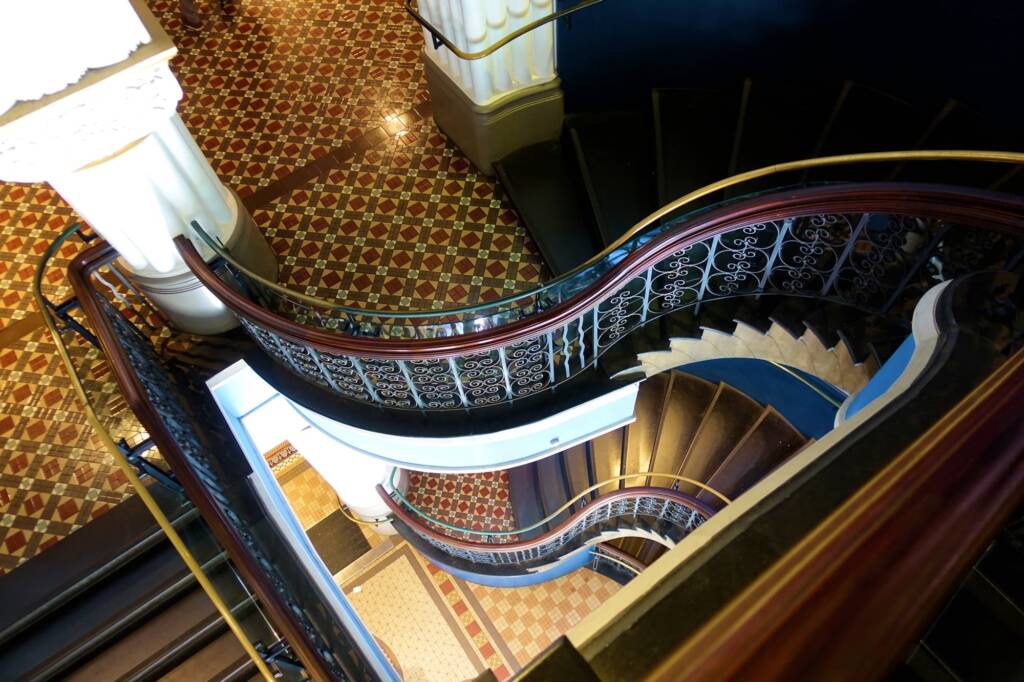
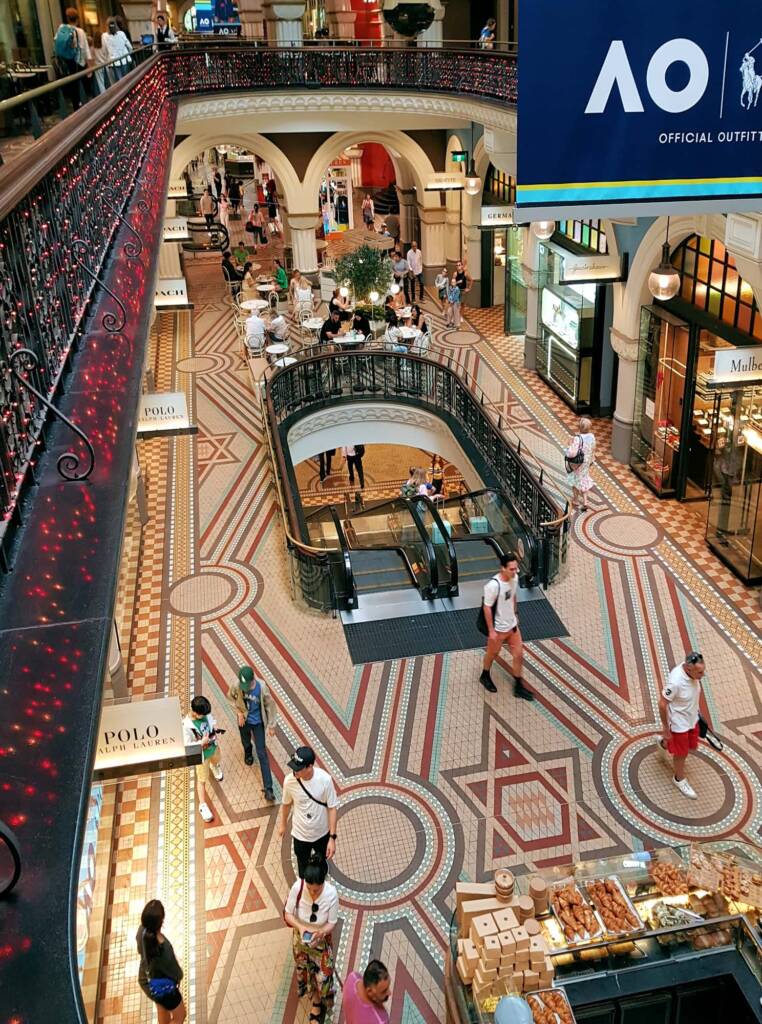
There are four shopping levels in the QVB, with the bottom floor below ground level that accesses the railway station.
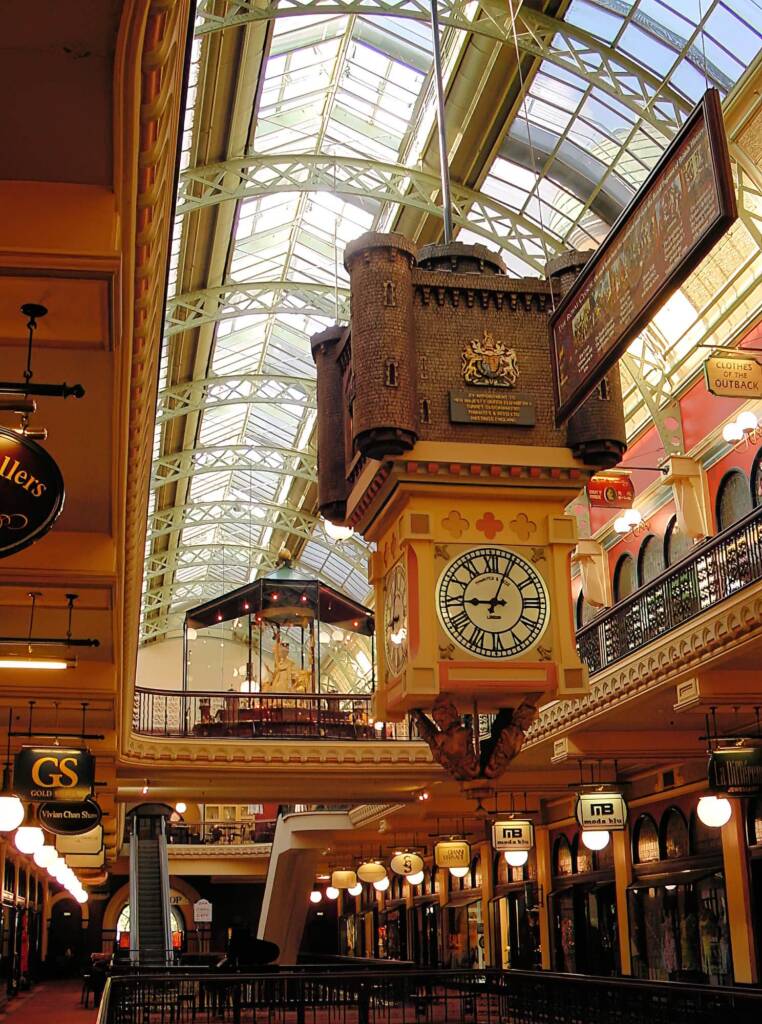
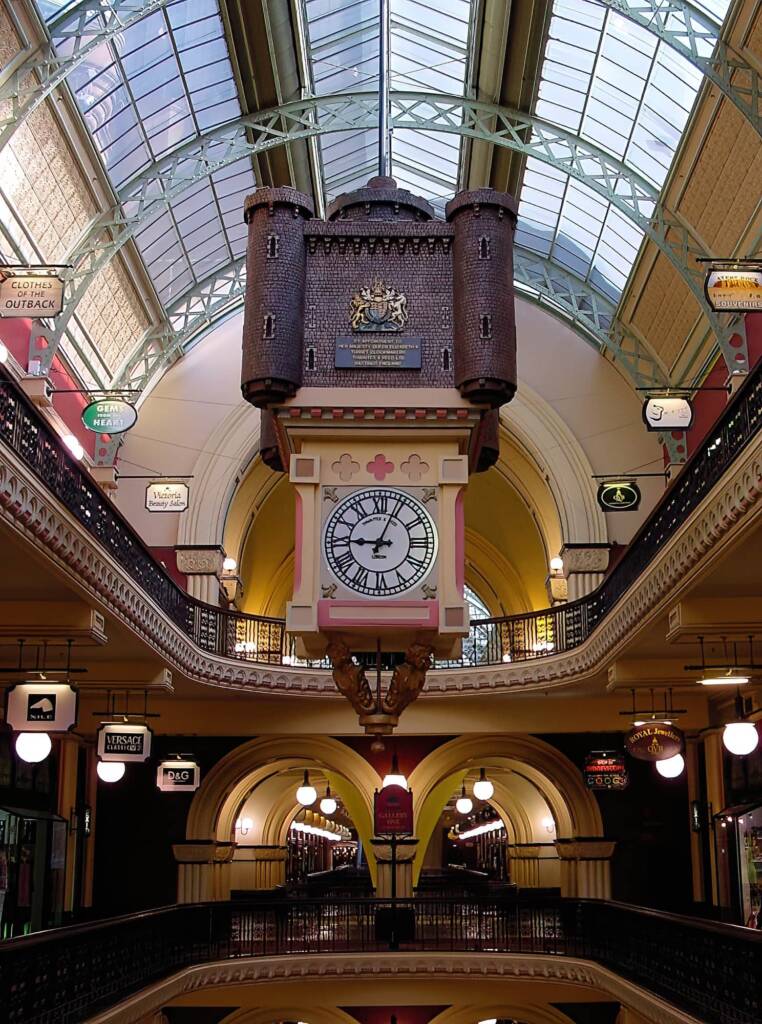
There are two great clocks in the QBV, with the Royal Clock located on the upper level of the southern half of the QVB and the Great Australian Clock hanging at the northern end of the building. The Great Australian Clock was designed and made by Chris Cook and includes 33 scenes from Australian history seen from both Aboriginal and European perspectives.
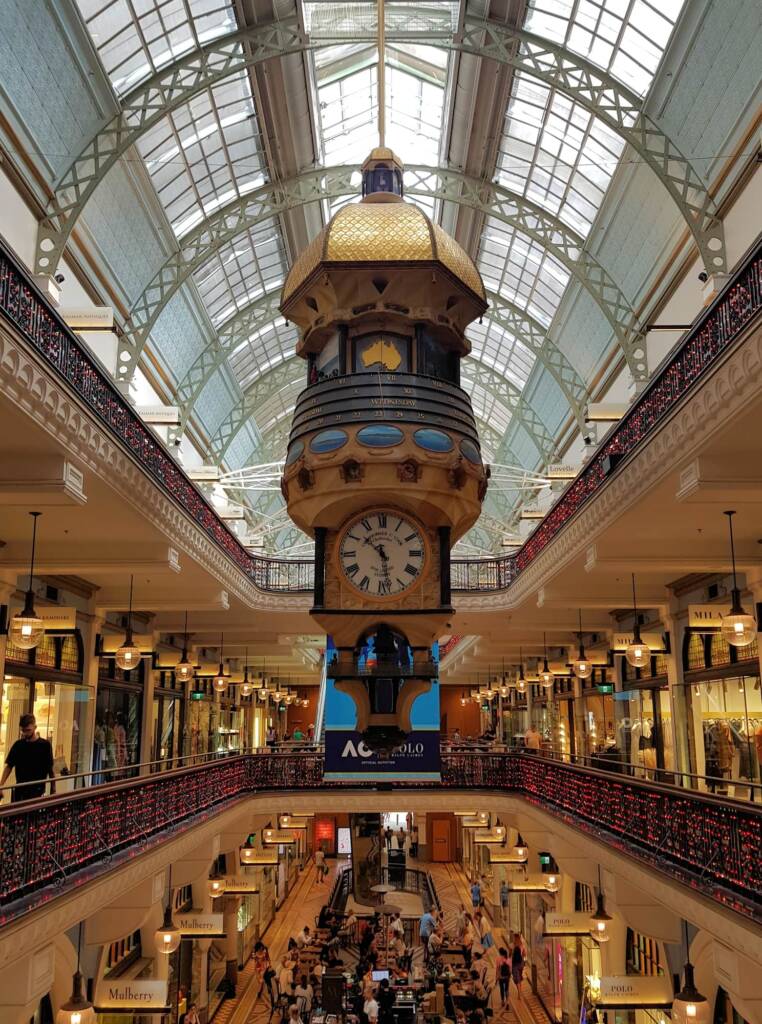
There is a statue of Queen Victoria at the southern end of the building, made by Irish sculptor John Hughes. This statue was originally outside the Irish Houses of Parliament in Dublin until 1947, when it was then donated to the people of Sydney.
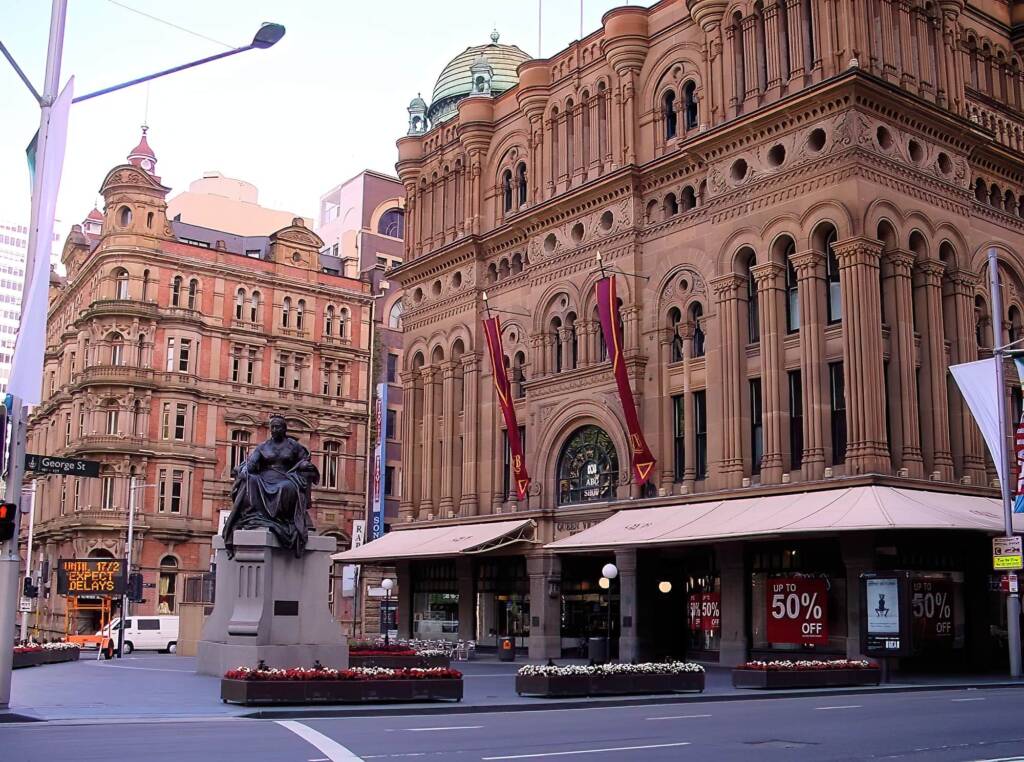
Behind her is The Legend of Islay – Wishing Well, a bronze statue of a Cairn Terrier who was Queen Victoria’s favourite pet. Over her lifetime Queen Victoria owned some 700 dogs4.
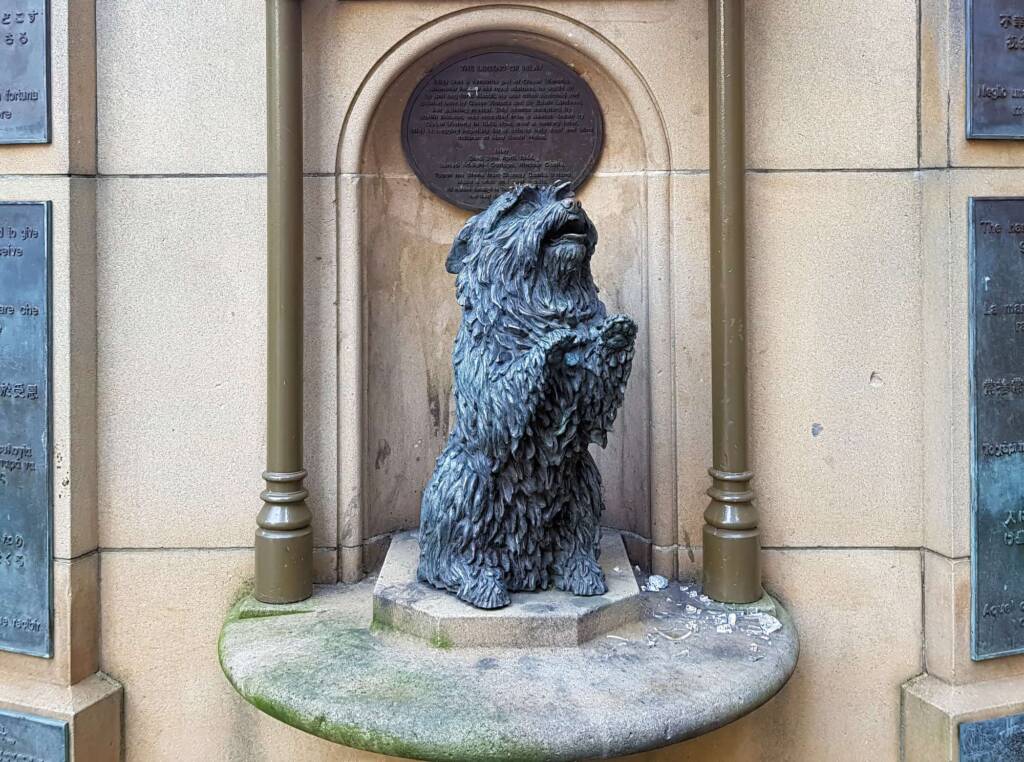
On occasions, you may hear a pianist playing on the piano in the QVB.
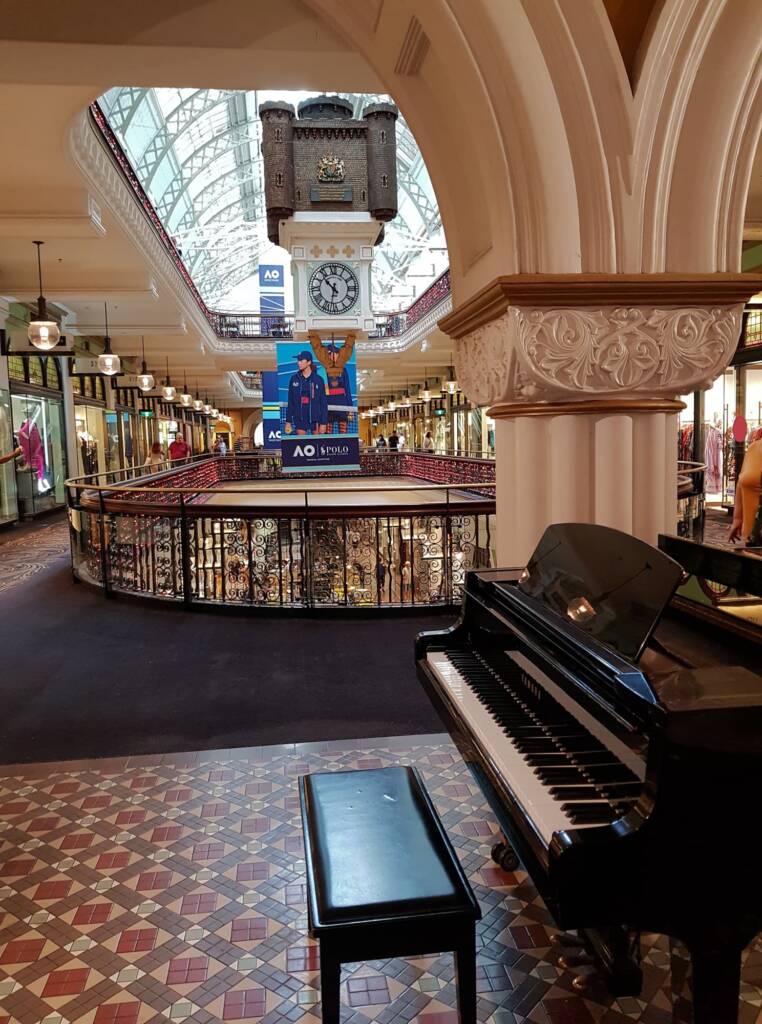
You can read more about the QVB in the links below.
Footnote & References
- QVB, https://www.qvb.com.au/
- Queen Victoria Building, Wikipedia, https://en.wikipedia.org/wiki/Queen_Victoria_Building
- 1898: Queen Victoria Building, Sydney, New South Wales., Stained Glass Australia, https://stainedglassaustralia.wordpress.com/category/queen-victoria-building/
- The heads of two dogs, a cairn and a greyhound, The British Museum, https://www.britishmuseum.org/collection/object/P_1926-0109-11
- Queen Victoria Building, Pocket Guide to Sydney, PocketOz, https://www.visitsydneyaustralia.com.au/queen-vic-bldg.html
Queen Victoria Building – QVBBarrel Vault Roof Cartwheel Window The Great Australian Clock Royal Clock
Sydney AttractionsArt Gallery of NSW Barangaroo Fort Denison – Muddawahnyuh Martin Place Queen Victoria Building – QVB St Mary’s Cathedral Sydney City of Escalators Sydney Harbour Bridge Sydney Hyde Park Sydney Monuments & Memorials Sydney Northern Beaches Sydney Opera House Sydney Tower Sydney Town Hall The Royal Botanic Garden Sydney Wynyard Park
SydneySydney Art Sydney Accommodation Sydney Attractions Sydney Cityscape Darling Harbour Sydney Fauna Sydney Flora
New South WalesBarunguba Montague Island Bourke Blue Mountains Bundeena Central Coast Kosciuszko National Park Mount Kaputar National Park Lower North Shore Northern Beaches Sapphire Coast Snowy Mountains Region South Coast Stony Range Regional Botanic Garden Sydney
